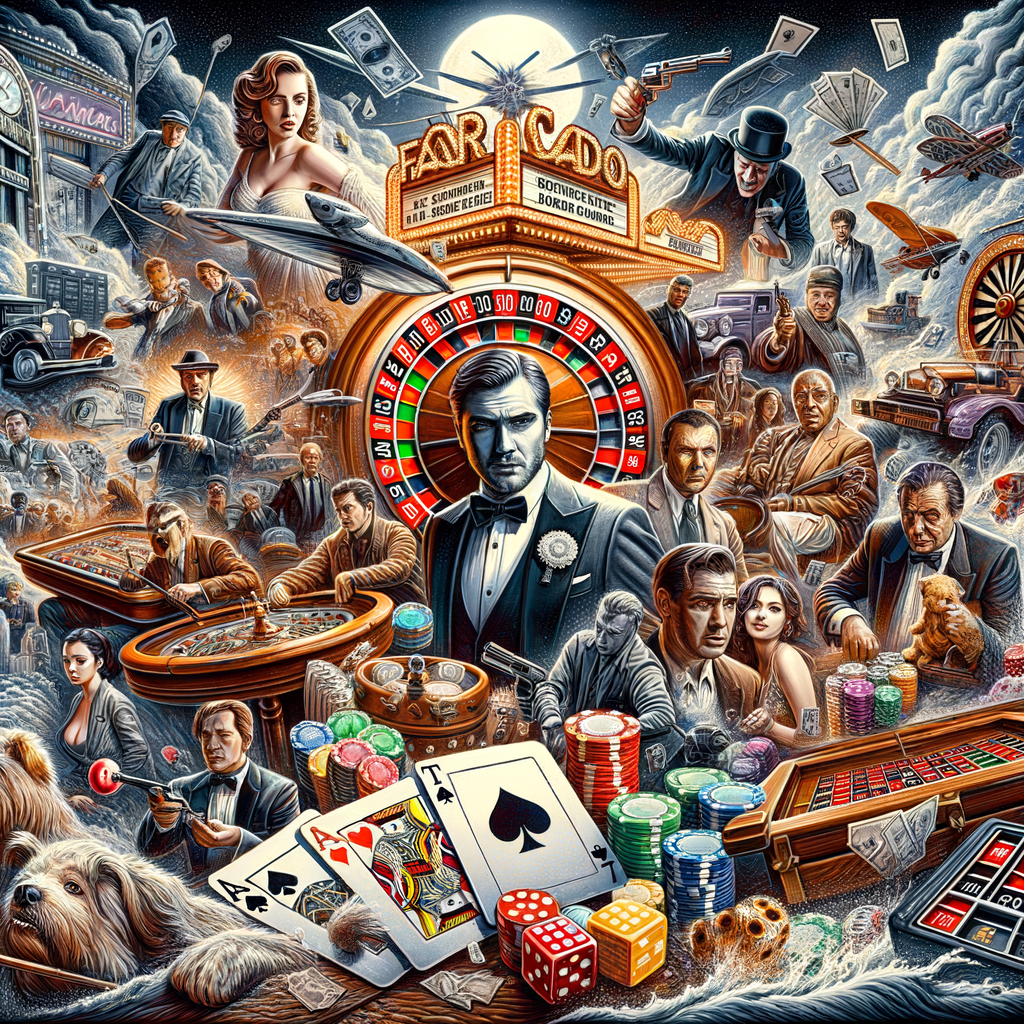Unveiling the Truth: Gambling Portrayals in Cinema
Gambling has long fascinated filmmakers, serving as a backdrop for stories of risk, drama, and human emotion. From high-stakes poker games in Las Vegas to underground betting rings, films have sought to capture the thrill and peril of gambling. However, while some productions achieve a level of authenticity, others fall prey to clichés and dramatized representations that can mislead audiences. The portrayal of gambling in cinema has become a multifaceted lens, allowing filmmakers to explore themes of greed, addiction, and the human condition.
One of the most significant issues with gambling portrayals in films is the tendency to romanticize the lifestyle of gamblers. Movies like "Casino Royale" and "Ocean’s Eleven" often depict gambling as glamorous, showcasing characters who seem to effortlessly navigate complex games and emerge victorious. Such depictions can create unrealistic expectations for viewers, leading them to believe that skill alone can guarantee success. While these films offer entertainment, they often gloss over the harsh realities of gambling addiction, financial ruin, and the emotional toll it can take on individuals and their families.
Conversely, some films strive for accuracy, delving into the psychological aspects of gambling. Movies like "Rounders" and "21" showcase the strategic thinking and mathematical prowess required for success in games like poker and blackjack. They present a more nuanced view of gambling, emphasizing the skill involved and the risks that accompany it. By highlighting the mental challenges gamblers face, these films provide a more realistic portrayal of the gambling world, even if they still embellish certain aspects for dramatic effect.
| Film Title | Portrayal Accuracy | Key Themes | Gambling Elements |
|---|---|---|---|
| Casino Royale | Moderate | Glamour vs. Danger | Poker, High-Stakes Gambling |
| Ocean’s Eleven | Low | Teamwork and Heist | Casino Heist, Strategy |
| Rounders | High | Skill vs. Luck | Poker, Mind Games |
| 21 | Moderate | Risk and Consequences | Blackjack, Card Counting |
| The Hangover | Low | Comedy and Consequences | Vegas Lifestyle, Luck |
From Glitz to Grit: Accuracy in Gambling Films Explained
When evaluating the accuracy of gambling films, it’s essential to consider the balance between entertainment and realism. On one hand, movies that strive for authenticity, like "Rounders," showcase the intellectual and psychological battle involved in games such as poker. Characters rely on reading opponents, calculating odds, and mastering the art of bluffing, which aligns closely with the real-life experience of professional gamblers. This accuracy not only educates audiences about the complexities of gambling but also elevates the narrative by grounding it in tangible strategies and risks.
On the other hand, films that focus on the glitzy aspects of gambling often miss the darker implications of the lifestyle. "Casino Royale," while visually stunning with its high-stakes poker showdown, can mislead viewers into thinking that gambling is merely a game of chance where wealth and power are easily attained. The film’s depiction of tension and thrill is palpable, but it neglects to explore the potential for addiction and the severe consequences that can arise from a reckless gambling lifestyle. As a result, audiences may walk away with a skewed understanding of gambling, failing to grasp the complexities and dangers involved.
Furthermore, some movies employ gambling as a narrative device rather than a central theme, leading to less accurate portrayals. For instance, "The Hangover" uses gambling as a comedic backdrop, prioritizing humor over realism. While the film captures the chaotic atmosphere of Las Vegas, it trivializes gambling and its potential consequences. Such portrayals may serve to entertain, but they often fail to provide any meaningful insight into the gambling experience. Ultimately, a more responsible representation would acknowledge both the allure and dangers of gambling, promoting a balanced perspective.
Common Questions About Gambling in Movies
Q: Why do filmmakers often glamorize gambling?
A: Filmmakers tend to glamorize gambling to attract audiences with excitement and allure, creating a narrative that emphasizes risk and high stakes while overlooking the darker realities.
Q: Are there any films that accurately depict the psychological aspects of gambling?
A: Yes, films like "Rounders" and "21" offer a more realistic portrayal of the psychological strategies and mental challenges involved in gambling, emphasizing skill and risk management.
Q: How can movies impact public perception of gambling?
A: Movies can shape public perception by romanticizing the gambling lifestyle, leading some viewers to underestimate the risks associated with gambling and potentially fostering unrealistic expectations.
Q: What are the consequences of inaccurate gambling portrayals in films?
A: Inaccurate portrayals can contribute to the normalization of risky gambling behaviors, minimize the seriousness of gambling addiction, and misinform audiences about the true nature of gambling activities.
Q: Can films help raise awareness about gambling addiction?
A: Yes, films that address the darker aspects of gambling, such as addiction and financial ruin, can serve as cautionary tales and raise awareness about the potential dangers associated with gambling.




Comments